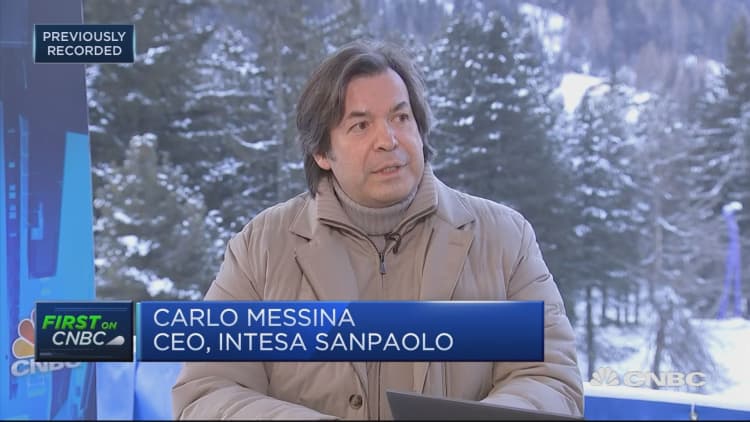
Doom and gloom over Italy's banking sector is "exaggerated," according to Intesa Sanpaolo CEO Carlo Messina.
The Italian government is in talks with the European Union over a 900 million euro ($998.4 million) rescue plan for ailing regional cooperative lender Popolare di Bari, its second such bailout plan in a year after the rescue of Genoa-based Carige.
Popolare di Bari had accumulated losses due to non-performing loans while struggling to raise capital, a similar situation to Carige, which was placed under administration by the European Central Bank (ECB) in January.
However, speaking to CNBC at the World Economic Forum in Davos on Tuesday, Messina suggested that the likes of Carige and Popolare di Bari's tiny market share in Italy meant that the associated negativity over the wider Italian banking system was disproportionate.
"On the other side, you have a company like us, with 1 trillion euros of wealth (assets under management) and more than 400 billion euros of loans that is one of the best performers in Europe," Messina contended.
"In each country you have some banks that can deliver negative performance, but all this emphasis, I think it is too exaggerated looking at the condition of the Italian banking system."
Asked about the ECB's current negative interest rate environment, bemoaned by a number of banking CEOs over the past year, Messina suggested that the central bank's monetary policy has had a "positive impact," but that the time had come for a "change of attitude" and a focus on the political goal of encouraging governments to engage in fiscal spending.





